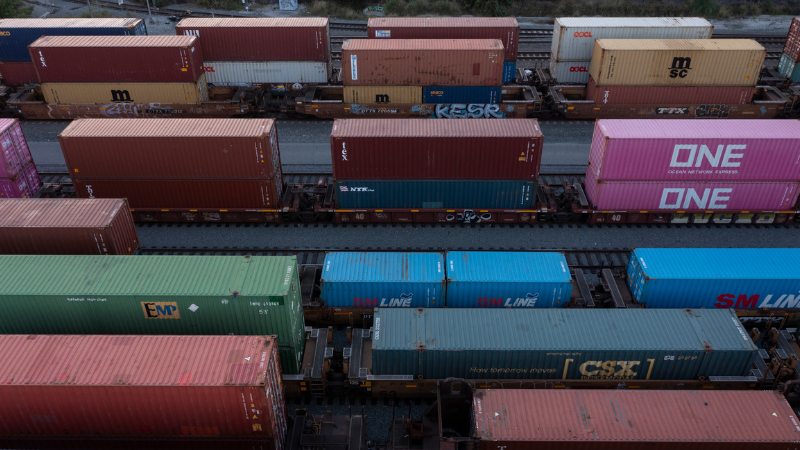
CHICAGO, August 1, 2025 —President Donald Trump has given importers seven days to pack U.S. warehouses with foods and other products from abroad before the goods are subject to tariffs ranging as high as 41%.
The loophole is apparently intended to build up stockpiles of goods before the stiff surcharges are levied. It was an unexpected inclusion in the executive order Trump signed Thursday night, imposing what the White House termed reciprocal tariffs on 70 nations.
The import charges imposed on goods from 40 of those countries were set by the White House at 15%, or what Administration officials have indicated will be the new base rate for incoming products. Previously, every exporting nation had been subject to a tariff of 10%.
The 30 other nations face a range of tariffs. The highest rate is the 41% set for Syria, with 40% duties scheduled for Myanmar and Laos, two nations that are believed to be way stops for Chinese products heading to the U.S.
No new tariff was set for China, which is still in trade negotiations with U.S. officials.
The duties will be imposed as of Aug. 7 unless an individual trade deal is struck with the affected exporting nation before then.
But goods loaded ahead of time for the last leg of their route to the U.S. will be exempted as long as they are taken out of warehouses here or provided to domestic users before Oct. 5.
Another unexpected provision in the executive order takes aim at a workaround that importers had forged to lower the duties due when their goods entered the United States. Some nations were believed to be shipping their products to nations with a lower U.S. proposed tariff and then routed to the U.S., as if it were a product from that second exporting country. A nation believed by U.S. trade officials to be serving as a go-between will be hit with an additional 40% duty, according to Trump’s executive order.
Trump stressed in the order that the U.S. is still open to deals like the one that was struck last week with the European Union. The consortium of European nations agreed not to impose new tariffs on imports from the U.S. in exchange for a 15% tariff on the goods they ship across the Atlantic. U.S. trade officials had threatened duties of up to 50%.
Virtually all the tariffs could be voided by a ruling from the U.S. Court of Appeals for the Federal Circuit. On Thursday, the court began hearing the Administration’s appeal of the ruling by the U.S. Court of International Trade that Trump lacked the authority to set the tariffs. Reports from media attending the Appeals Court trial said the justices were very pointed in their questions to the Administration’s legal team, suggesting the judges aren’t being swayed by the White House’s arguments.
Trump contends the nation’s international trade imbalance poses an “unusual and extraordinary threat to the national security and economy of the United States,” as he wrote in yesterday’s executive order. He and his staff have argued that the president has the authority under the office’s presumed emergency powers to levy the charges.
His stated objective is to foster domestic production of essential goods and push the cost of competing imports above the price of the versions manufactured in the U.S.
The restaurant industry has been bracing for the impact. On Tuesday, the National Restaurant Association implored U.S. Trade Representative Jamieson Greer to exempt food and beverage imports from the tariffs. It argued in a letter to the President’s main trade advisor that many of those goods can’t be grown in the U.S., and that imported foods and beverages account for a miniscule portion of all the products that are shipped into the U.S.
Hiring by eating and drinking places leveled off in July, and the national unemployment rate ticked up to 4.2%.
Trump’s executive order triggered an immediate sell-off on the major U.S. stock exchanges when they opened this morning. At the time of this posting, the Dow Jones Industrial Average had dropped by 600 points, shedding 1.4% of its value. The NASDAQ and S&P 500 had lost a point.
As Managing Editor for IFMA The Food Away from Home Association, Romeo is responsible for generating the group's news and feature content. He brings more than 40 years of experience in covering restaurants to the position.
Cover image courtesy: Closed Loop Project